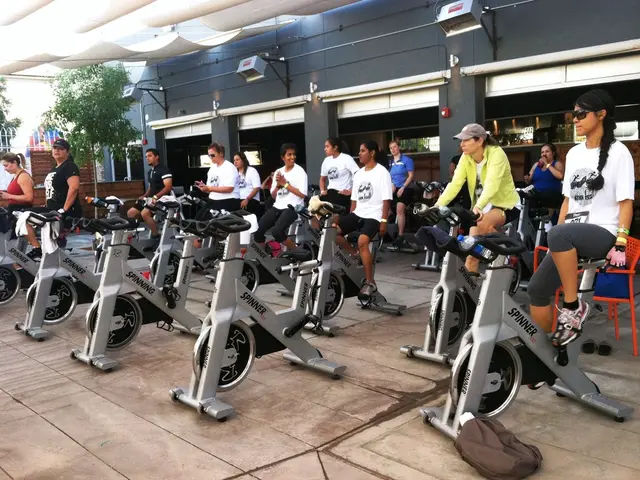Two essential health issues identified as potentially leading to cancer by an expert in the field of cancer care.
Wondering What Really Causes Cancer? Here's a Gist:
Image Source: Shutterstock
Many folks mistakenly believe that a single mutation in a cell is the sole cause of cancer. However, Dr. Vladimir Ivashkov, a medical popularizer, practicing oncologist, and candidate of medical sciences, asserts that we're still figuring out the exact answer. He stresses that numerous factors contribute to the development of cancer.
THE KEY PLAYERS IN CANCER DEVELOPMENT
A cell mutation sparks a chain reaction, turning a healthy cell into a malignant one, setting the stage for tumor growth. However, this process doesn't occur overnight. The mutation can occur randomly, but an unhealthy lifestyle increases the risk. Another crucial factor is the strength of an individual's immune system. Specifically, how effectively it identifies and destroys mutated cells.
HABITS THAT HINDER YOUR IMMUNE SYSTEM
When the immune system is weakened, it struggles to protect us from the development of tumors. Factors that jeopardize the immune system include:
- Tobacco: Regular smoking or past smoking significantly raises the risk of lung, throat, stomach, prostate, and bladder cancer.
- Alcohol: Consuming alcohol excessively can impair the immune system and weaken the body's ability to fight off tumors.
- Sun Exposure: Prolonged exposure to direct sunlight, especially between 11 am and 4 pm, without adequate protection increases the risk of skin cancer.
- Obesity: Excess weight can contribute to various types of cancer, particularly breast, prostate, and colorectal cancer.
- Sedentary Lifestyle: A lack of physical activity can hinder the immune system and raise the risk of cancer.
- Improper Nutrition: A diet low in fruits, vegetables, whole grains, and lean proteins, and high in processed foods can increase the risk of several types of cancer.
Although these risk factors can decrease the immune system's effectiveness, they don't guarantee that cancer will develop. Conversely, a healthy lifestyle doesn't offer complete protection but can significantly lower the chances.
MOST BENEFICIAL DIET FOR CANCER PREVENTION
The Mediterranean diet, rich in fruits, vegetables, nuts, fish, and whole grains, has been found to help lower the risk of cancer. Studies show that people who consume this diet have fewer instances of tumor development.
GENETIC TESTING AND CANCER PREVENTION
Today, genetic tests are available for specific mutations. Celebrities like Angelina Jolie have used these tests to identify mutations increasing their risk of breast and ovarian cancer. However, in Russia, preventive operations based solely on genetic test results are not allowed unless a tumor is simultaneously present in another breast. In cases like Jolie's, where mutations and a heavy family history of aggressive breast and ovarian cancer are present, a sub-total resection (removal of about 90% of the breast tissue) may be performed to reduce the risk significantly.
EARLY DETECTION AND PREVENTIVE CHECKS
In its early stages, cancer often exhibits no symptoms. For this reason, doctors advise regular preventive checks - oncoscrenings. These tests help detect tumors when they're still "silent" and haven't manifested any symptoms.
Oncologist Vladimir Ivashkov recommends that all women, starting at age 21, get an annual breast ultrasound. After age 40, an additional mammogram every two years is advisable. The majority of tumors can be detected with these two examinations, according to the doctor.
Additional tests like chest X-rays, abdominal ultrasounds, pelvic ultrasounds, gastroscopies, and colonoscopies can help ensure the absence of other types of tumors and provide peace of mind.
Note: Some of these examinations are included in free oncoscreenings provided by the mandatory health insurance system in Russia. For more information, visit KP.RU in the "Health" section.
In related news, it's unwise for healthy individuals to pay for blood tests marketed for cancer detection. These tests, which can cost tens of thousands of rubles, cannot detect specific molecules that uniquely indicate cancer of a particular organ. For example, the popular oncomarker CA-125 can be elevated for reasons other than ovarian cancer. Conversely, normal oncomarkers don't guarantee the absence of tumors.
- Dr. Vladimir Ivashkov, a practicing oncologist, emphasizes that multiple factors contribute to the development of cancer, not just a single mutation in a cell.
- Factors that jeopardize the immune system's effectiveness in identifying and destroying mutated cells, include regular smoking or past smoking, excessive alcohol consumption, prolonged sun exposure, obesity, a sedentary lifestyle, and improper nutrition.
- The Mediterranean diet, rich in fruits, vegetables, nuts, fish, and whole grains, has been found to help lower the risk of cancer.
- Oncopsychologists recommend maintaining a healthy lifestyle to lower the chances of cancer, as it may not offer complete protection, but it significantly decreases the likelihood.
- Early detection of cancer through regular preventive checks like annual breast ultrasounds and mammograms, can help detect tumors when they're still in their silent stages, according to oncologist Vladimir Ivashkov.









